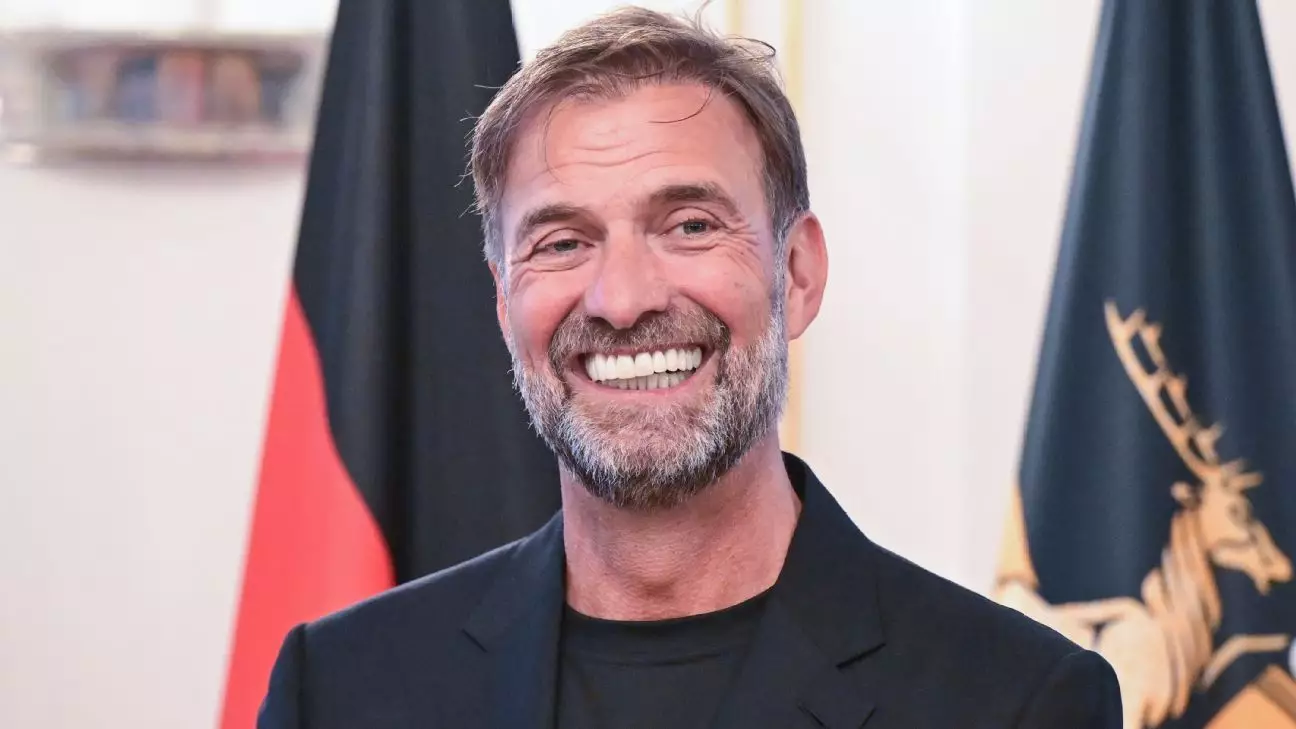In a surprising career pivot, Jürgen Klopp, the renowned former Liverpool manager, has accepted a prominent position within the Red Bull group as the head of global soccer. This transition was officially announced on a Wednesday morning, signaling a new chapter for the tactician known for his energetic sideline presence and tactical acumen. Gone are the days of him donning a tracksuit on match days; instead, Klopp will trade in that familiar attire for formal wear as he steps into a director’s role. His expansive experience is expected to be a key asset for Red Bull’s portfolio of clubs, which includes RB Leipzig, RB Salzburg, New York Red Bulls, and Red Bull Bragantino in Brazil, along with a minority stake in Leeds United.
As he embarks on this journey, Klopp’s primary responsibilities will revolve around developing Red Bull’s strategic vision, mentoring coaches across their global clubs, and bolstering the group’s scouting operations. While the allure of this new challenge is undeniable, there are indications that Klopp may not be removed from the touchline for as long as anticipated. Reports suggest that his contract includes a release clause enabling him to manage the German national team if approached by the DFB. This clause hints at a potential return to management that may coincide with the upcoming 2026 World Cup.
Klopp’s decision to step back from club management after his illustrious tenure at Liverpool stemmed from a period of intense physical and emotional fatigue. After nearly a decade in charge at Anfield, during which he led the club to both UEFA Champions League and Premier League titles, Klopp openly admitted that the pressure began to take a toll on him. Reflecting on his time at Liverpool, he shared a poignant realization: “There was a day — a week, two weeks, three weeks — when I realized I can’t do it anymore.” The relentless cycle of planning, executing, and subsequently preparing for the next season proved overwhelming, prompting him to seek a break for personal rejuvenation alongside family, particularly to spend valuable moments with his newly born grandchild.
Despite the temptation to dive back into management after receiving offers from several prominent organizations, including an overture from the United States Soccer Federation, Klopp turned down these opportunities, insisting on taking a year to recharge. Initially, his sabbatical seemed unwavering, as he articulated his intentions at the International Coaches Congress in July. Yet, as history often suggests with Klopp, a pull to return to the game is evident.
Taking the helm at Red Bull presents a unique set of challenges for Klopp. While he boasts an impressive managerial track record, including success at multiple high-profile clubs, the role he is stepping into is markedly different. The world of director-level football management can be fraught with complexities and internal politics that Klopp has previously opted to steer clear of. Now, as he transitions from coach to director, he will have to navigate multifaceted relationships and decision-making processes that define boardroom dynamics.
Klopp’s history is one where he thrived in direct managerial roles, connecting with players on emotional and professional levels. Yet, as Red Bull’s head of global soccer, he will take on a role beyond the confines of the pitch; he will now oversee a myriad of coaching decisions and play a vital role in strategic planning for his clubs. Notably, the eyes of the football world will be watching how this transition unfolds, particularly concerning the success of Red Bull clubs in the upcoming seasons and how Klopp manages coach replacements when necessary.
While Klopp’s current position may appear to be a long-term commitment, many analysts speculate about the inevitability of his return to club management. The prospect of him leading the German national team draws considerable attention, especially given the potential vacancy that may arise post-Euro 2024. Julian Nagelsmann, the current Germany coach, is garnering increasing respect; his extended contract until 2026 might denote a stable period for the national team. However, should Nagelsmann be approached by prestigious clubs like Manchester City or Manchester United in the near future, Klopp could very well find an opportunity to step back into the limelight.
Indeed, each passing day in his new role at Red Bull may act as a springboard for a more permanent return to the sideline. Klopp’s genuine connection to the game, combined with his innate driving passion, indicates that once he has sufficiently familiarized himself with the intricacies of basketball management, he may swiftly revert to engaging directly with players and fans, where his talents truly shine.
Jürgen Klopp’s evolution from a celebrated manager to a strategic director for Red Bull holds the promise of an enthralling journey into the realm of football management. Amidst this transformation, there remains an underlying anticipation that the magnetic presence of Klopp on the sidelines, guiding players and igniting passions in stadiums worldwide, is just a matter of time away.

